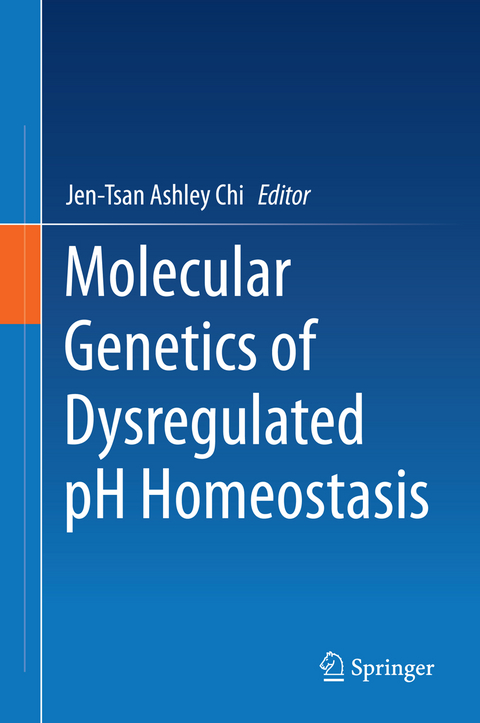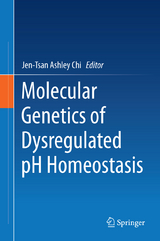Molecular Genetics of Dysregulated pH Homeostasis
Seiten
2014
|
2014 ed.
Springer-Verlag New York Inc.
978-1-4939-1682-5 (ISBN)
Springer-Verlag New York Inc.
978-1-4939-1682-5 (ISBN)
Most biological reactions and functions occur within a narrow range of pH. Any changes in the pH have great impacts on the biological functional at every level, including protein folding, enzymatic activities and proliferation and cell death. Therefore, maintain the pH homeostasis at the local or systemic level is one of the highest priorities for all multicellular organisms. Many redundant mechanisms are in place to maintain the pH homeostasis, a topic that is well covered in the scientific literature and medical textbooks. However, when the pH homeostasis is disrupted in various physiological adaptations and pathological situations, resulting acidity may trigger significant pathophysiological events and modulate disease outcomes. Therefore, understanding how various cells sense and react to acidity have broad impact in a wide variety of human diseases, including cancer, stroke, myocardial infarction and diabetes, renal and infectious diseases. In this book, many investigators have summarized the molecular genetics on the detailed mechanisms by which different mammalian cells sense and response acidity. These chapters cover the acidity with broad impact in biological understanding and human diseases and review various sensing mechanism and cellular responses to pH alterations in both physiological (taste, pain) and pathological settings (ischemia and cancers). Furthermore, these authors present a broad spectrum of investigative approaches to cellular response to acidosis in a in wide variety of human diseases.
Molecular Genetics of Acid Sensing and Response.- Part I: Sensing Acidity.- The molecular mechanism of cellular sensing of acidity.- The Molecular Basis of Sour Sensing in Mammals.- Function and Signaling of the pH-sensing G protein-coupled receptors in physiology and diseases.- Part II: Response to Acidity.- The MondoA-TXNIP checkpoint couples the acidic tumor microenvironment to cell metabolism.- Regulation of Renal Glutamine Metabolisms during Metabolic Acidosis.- Extracellular acidosis and cancer.- The genomic analysis of cellular responses and adaptions to extracellular acidosis.- Index.
| Zusatzinfo | 12 Illustrations, color; 4 Illustrations, black and white; VIII, 160 p. 16 illus., 12 illus. in color. |
|---|---|
| Verlagsort | New York |
| Sprache | englisch |
| Maße | 155 x 235 mm |
| Themenwelt | Medizin / Pharmazie ► Medizinische Fachgebiete |
| Studium ► 2. Studienabschnitt (Klinik) ► Humangenetik | |
| Naturwissenschaften ► Biologie ► Genetik / Molekularbiologie | |
| Naturwissenschaften ► Biologie ► Zellbiologie | |
| Schlagworte | dysregulation • molecular genetics • pH homeostasis |
| ISBN-10 | 1-4939-1682-3 / 1493916823 |
| ISBN-13 | 978-1-4939-1682-5 / 9781493916825 |
| Zustand | Neuware |
| Haben Sie eine Frage zum Produkt? |
Mehr entdecken
aus dem Bereich
aus dem Bereich
Eine sehr persönliche Geschichte | Der New York Times-Bestseller
Buch | Softcover (2023)
Ullstein Taschenbuch Verlag
21,99 €
Die revolutionäre Medizin von morgen (Lifespan)
Buch | Softcover (2020)
DuMont Buchverlag
16,00 €




